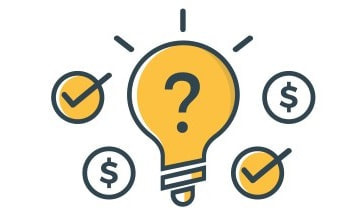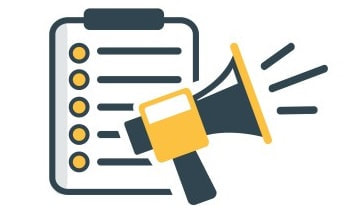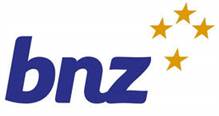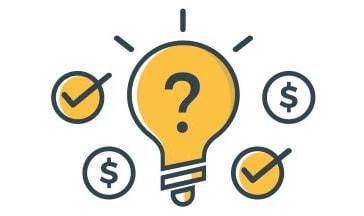Student Bank Accounts - Picking the Best Deal While You Study
Our review of student bank packages explains everything you need to know about your options.
Updated 17 July 2024
Summary of Student Bank Accounts:
- Not all Student Bank Accounts are the same - and all have fees for overdrafts.
- Some banks charge for a debit card, some don't.
- The Co-operative bank pays 4.30% per annum on deposits; most other pays pay nothing (i.e. 0%).
- Some accounts don't charge for campus ATM use, so you don't need to pick an account based on whether the bank has a branch on campus.
- Get one as soon as you can - you'll get free fees and freebies such as credit cards as well as other perks.
Our view:
In this guide, we review the best student bank account for your needs and offer helpful step by step guidance to protect yourself from blowouts and financial hardship. Being a student is stressful enough without facing unavoidable money issues. We cover:
Know This First: Overdrafts are no longer 'guaranteed'.
Important - Student Bank Accounts can be an asset, but you need to know how they work. MoneyHub user Andrew explains:
“I was in my first year and had a $1,000 overdraft. I didn’t think I’d need it but o-week was a blowout and I quickly hit the limit. The timing wasn’t great and I became financially crunched in the second week of studies, meaning I had to borrow from my sister urgently. I thought my student bank account would let me increase the overdraft but it didn’t, I learned that the hard way”.
- Student Bank accounts are exactly that; bank accounts for those enrolled in university or polytechnic, or higher education such as an apprenticeship.
- The features of these accounts can save you hundreds of dollars a year, as they include free account fees, free transactions, higher deposit interest rates for savings, free credit cards, interest-free overdrafts and special offers.
- However, student bank accounts also need to be treated with caution and used sensibly to avoid financial stress later on in your studies - nothing is ever free, and the banks cannot be relied on if you find yourself short on cash.
In this guide, we review the best student bank account for your needs and offer helpful step by step guidance to protect yourself from blowouts and financial hardship. Being a student is stressful enough without facing unavoidable money issues. We cover:
- Six Essential Tips For Student Bank Accounts
- The Best Student Bank Accounts Currently Available
- Student Bank Account FAQs
- Top Tips and General Information
Know This First: Overdrafts are no longer 'guaranteed'.
- Changes to CCCFA legislation mean banks assess all lending applications in greater detail.
- This means Studylink payments are no longer treated as a source of income in overdraft applications. As a result, students without income from employment are less likely to qualify for an overdraft.
- However, banks will work with all tertiary customers who request an overdraft on a case-by-case basis to assess their options.
Important - Student Bank Accounts can be an asset, but you need to know how they work. MoneyHub user Andrew explains:
“I was in my first year and had a $1,000 overdraft. I didn’t think I’d need it but o-week was a blowout and I quickly hit the limit. The timing wasn’t great and I became financially crunched in the second week of studies, meaning I had to borrow from my sister urgently. I thought my student bank account would let me increase the overdraft but it didn’t, I learned that the hard way”.
MoneyHub Founder Christopher Walsh shares his views on Student Bank Accounts:
|
"Student bank accounts are, for the most part, similar between the banks. Banks continue to close branches, and universitiy branches have not been spared. I believe that the best way to understand and manage your money is via a banking app that shows you where your money goes. This way, you're familiar with your balance, upcoming expenses and can plan accordingly".
"Being a student is tough financially if you live away from home. The temptation is to dip into an overdraft, but this is not an endless money source. When it hits the limit, things get uncomfortable. And that's not what you want when concentrating on assessments and exams. For this reason, I'd suggest you avoid looking at credit cards - banks like to offer them to students, but a lack of income can make it hard to repay them". "The best bank account right now is one that you have a good feeling about. Student years will either be a success (financially) or a tough time. I suggest getting familiar with your money, using a budget app, and putting some money aside for savings. Every bank account offers a savings account on the side, and having an emergency fund will help you even if it's only $250 or $500; it can make a big difference". |
MoneyHub Founder Christopher Walsh
|
Our Top-Rated All-in-One Everyday Student Account and Budgeting App With Day-to-Day Flexibility and Interest EarningSavvy is our Favourite Student Account Winner for 2024 and is designed to meet students' unique financial needs. It functions as an interest-paying transactional account and offers comprehensive spending-tracking features. These help you monitor your spending habits by categorising expenses, providing insights into your spending patterns, and highlighting areas where you can cut costs.
Why does this matter?
|
Why we believe Savvy is perfect for Students:
- High Returns: Earn a substantial 5% p.a. return, reviewed monthly, with the potential for additional quarterly bonus returns. This means your savings grow faster, helping you make the most of your money.
- Instant Access: You can withdraw your funds anytime, anywhere, with no penalty to the return you earn. This is especially useful for students who might need quick access to their money.
- Mastercard Debit Card: You can pay how you want with contactless, EFTPOS, Apple Pay and Google Pay. Use it online, throughout New Zealand and around the world wherever Mastercard is accepted.
- Payments: Easily make and receive day-to-day payments to New Zealand bank accounts, make transfers and set up automatic payments, and use your card to pay for subscriptions like Netflix. Note that Savvy does not offer Direct Debits, but you have all the other functionalities needed for smooth financial management.
- Organise Your Funds: Savvy lets you divide your money into multiple 'Stacks' (accounts), automating your financial management. Plus, it includes savings tools and spending insights, helping you stay on top of your financial goals.
- Digital First: Experience the future of banking with an app-based investment experience, available on both the App Store and Google Play. This makes managing your money easy and convenient, right from your phone.
- No Minimum Balance: Every cent in your account earns interest, so you don't need to worry about maintaining a minimum balance, and you can't go into overdradft either.
- 24/7 Access: The digital platform ensures that your funds are accessible anytime through the app and debit card, which are usable on the Mastercard network, EFTPOS, and across ATMs.
- Connected at all times: It also comes with a digital card that can be used with Google Pay and Apple Pay. Your Savvy digital card can be saved to your phone's digital wallet and used for quick, secure, contactless payments, in-app and online. A physical debit card is also provided for your convenience, ensuring you always have access to your funds.
- More details: Our Savvy Review explains the product in detail, as does the Savvy website. Please note you will need to be aged 18 or older to apply.
Six Essential Tips for Student Bank Accounts
- Get the biggest 0% overdraft available so you have it when you need it, but make sure the account has low fees - many don't!
- Ask for increased overdrafts at the start of every year so you have it if you need it.
- Not all student bank accounts offer the same - overdraft fees vary, as does the allowance.
- Never go above your approved overdraft limit
- Plan your finances with a realistic budget – this will help you immensely throughout your studies
- Save as much as you can in on-call deposits when you earn or receive money
Student Life and the Reality of Overdrafts
Almost every student will need an overdraft, which means the bank will lend you more money than you have to a set limit. The standard overdraft is $1,000 for first-year students but you can go higher in subsequent years of study. Make sure you have the overdraft confirmed by your bank so you have it available when you need it.
Warning: If you’re not able to budget or have bad spending habits, ask your bank for a smaller overdraft – the less you borrow, the less chance you have of being dragged into debt.
Almost every student will need an overdraft, which means the bank will lend you more money than you have to a set limit. The standard overdraft is $1,000 for first-year students but you can go higher in subsequent years of study. Make sure you have the overdraft confirmed by your bank so you have it available when you need it.
Warning: If you’re not able to budget or have bad spending habits, ask your bank for a smaller overdraft – the less you borrow, the less chance you have of being dragged into debt.
The Best Student Bank Accounts Currently Available
We've listed all of the student bank accounts available for year 1 students and the 0% overdraft limits amount they offer, ranked from most attractive to least attractive.
Reminder: Overdrafts are no longer 'guaranteed'.
Reminder: Overdrafts are no longer 'guaranteed'.
- Changes to CCCFA legislation mean banks assess all lending applications in greater detail.
- This means Studylink payments are no longer treated as a source of income in overdraft applications. As a result, students without income from employment are less likely to qualify for an overdraft.
- However, banks will work with all tertiary customers who request an overdraft on a case-by-case basis to assess their options.
ASB Bank Streamline Account
Benefits:
Overdraft:
Our view: The ASB offers standard benefits with its free debit card and money tips podcast, but the benefits of previous years have been reduced significantly.
Next Steps: Visit ASB for more information
- Free account fees
- Free debit card
- Unlimited transactions
Overdraft:
- Not available
Our view: The ASB offers standard benefits with its free debit card and money tips podcast, but the benefits of previous years have been reduced significantly.
Next Steps: Visit ASB for more information
The Co-operative Bank Tertiary Student Package
Benefits:
Overdraft:
Our view: The Co-operative bank trumps every bank by offering free ATM use anywhere, but has a limited $1,000 overdraft that costs $42/year to have. There is an excellent deposit rate of 5.55%. The drawback of the service is that there are a limited number of branches (27 nationwide) which may be inconvenient.
Next Steps: Visit The Co-operative Bank for more information
- Free account fees
- Flexible ATM usage – cardholders can use any bank ATM free of charge
- Free debit card
- Attractive 5.55% interest rate on savings on call (up to $4,000, paid monthly)
- Unlimited transactions
Overdraft:
- Available, subject to lending and affordability criteria, to all students 18 years or over who are permanent NZ residents.
- Up to $1,000 interest-free overdraft
- No fee for the overdraft facility
Our view: The Co-operative bank trumps every bank by offering free ATM use anywhere, but has a limited $1,000 overdraft that costs $42/year to have. There is an excellent deposit rate of 5.55%. The drawback of the service is that there are a limited number of branches (27 nationwide) which may be inconvenient.
Next Steps: Visit The Co-operative Bank for more information
Westpac Tertiary Account
Benefits:
Overdraft:
Our view: Westpac is the only bank to offer Airpoints on the Debit Card, which we consider quite generous even of the earn rates are low. The bank also offers the CashNav app to track spending into categories. Combined with a useful PayTag® and overdraft fees of $36/year, the offering is a strong all-round package for any student.
Next Steps: Visit Westpac for more information
- Free account fees
- Free debit card, including the Airpoints™ Debit Mastercard® (one Airpoints Dollar for every NZ$250 you spend)
- Unlimited transactions
Overdraft:
- Available, subject to lending and affordability criteria, to all students 18 years or over who are permanent NZ residents.
- Up to $2,000 interest-free overdraft for first-year students (on application)
- $3/month facility fee for an overdraft
Our view: Westpac is the only bank to offer Airpoints on the Debit Card, which we consider quite generous even of the earn rates are low. The bank also offers the CashNav app to track spending into categories. Combined with a useful PayTag® and overdraft fees of $36/year, the offering is a strong all-round package for any student.
Next Steps: Visit Westpac for more information
ANZ Bank Jumpstart Account
Benefits:
Overdraft:
Our view: The ANZ delivers with a free debit card and competitive $3/month overdraft facility fee, but still lacks the perks offered by some other banks.
Next Steps: Visit ANZ Bank for more information
- Free account fees
- Free debit card
- Unlimited transactions
- 12 months credit card fee waiver (credit card annual fees start at $35/year)
Overdraft:
- Available, subject to lending and affordability criteria, to all students 18 years or over who are permanent NZ residents.
- Up to $1,000 interest-free overdraft for first-year students
- $2,000 for second and subsequent year students
- $3/month facility fee for an overdraft
Our view: The ANZ delivers with a free debit card and competitive $3/month overdraft facility fee, but still lacks the perks offered by some other banks.
Next Steps: Visit ANZ Bank for more information
Bank of New Zealand YouMoney Tertiary Account
Benefits:
Overdraft:
Our view: With no perks other than free fees, and no overdraft available, the BNZ offers a standard student banking package.
Next Steps: Visit BNZ for more information
What about Kiwibank?
- Free account fees
- Free account alerts
- Unlimited transactions
- Free Flexi debit card at no extra cost
Overdraft:
- Not available
Our view: With no perks other than free fees, and no overdraft available, the BNZ offers a standard student banking package.
Next Steps: Visit BNZ for more information
What about Kiwibank?
- In 2021, Kiwibank discontinued its student/tertiary bank accounts. If you're an existing Kiwibank customer, we suggest looking at other banks (as outlined in this guide) to find a suitable student bank account for your needs.
Our Top-Rated All-in-One Everyday Student Account and Budgeting App With Day-to-Day Flexibility and Interest EarningSavvy is our Favourite Student Account Winner for 2024 and is designed to meet students' unique financial needs. It functions as an interest-paying transactional account and offers comprehensive spending-tracking features. These help you monitor your spending habits by categorising expenses, providing insights into your spending patterns, and highlighting areas where you can cut costs.
Why does this matter?
|
Why we believe Savvy is perfect for Students:
- High Returns: Earn a substantial 5% p.a. return, reviewed monthly, with the potential for additional quarterly bonus returns. This means your savings grow faster, helping you make the most of your money.
- Instant Access: You can withdraw your funds anytime, anywhere, with no penalty to the return you earn. This is especially useful for students who might need quick access to their money.
- Mastercard Debit Card: You can pay how you want with contactless, EFTPOS, Apple Pay and Google Pay. Use it online, throughout New Zealand and around the world wherever Mastercard is accepted.
- Payments: Easily make and receive day-to-day payments to New Zealand bank accounts, make transfers and set up automatic payments, and use your card to pay for subscriptions like Netflix. Note that Savvy does not offer Direct Debits, but you have all the other functionalities needed for smooth financial management.
- Organise Your Funds: Savvy lets you divide your money into multiple 'Stacks' (accounts), automating your financial management. Plus, it includes savings tools and spending insights, helping you stay on top of your financial goals.
- Digital First: Experience the future of banking with an app-based investment experience, available on both the App Store and Google Play. This makes managing your money easy and convenient, right from your phone.
- No Minimum Balance: Every cent in your account earns interest, so you don't need to worry about maintaining a minimum balance, and you can't go into overdradft either.
- 24/7 Access: The digital platform ensures that your funds are accessible anytime through the app and debit card, which are usable on the Mastercard network, EFTPOS, and across ATMs.
- Connected at all times: It also comes with a digital card that can be used with Google Pay and Apple Pay. Your Savvy digital card can be saved to your phone's digital wallet and used for quick, secure, contactless payments, in-app and online. A physical debit card is also provided for your convenience, ensuring you always have access to your funds.
- More details: Our Savvy Review explains the product in detail, as does the Savvy website. Please note you will need to be aged 18 or older to apply.
Student Bank Account Frequently Asked Questions
When can I open a student bank account?
To be eligible you will need to be studying with an approved NZQA education provider. The bank you select will ask you to confirm and prove you are enrolled in studies and are over 17 years of age.
What ID do I need to open a student bank account?
You will need a valid ID, such as a driver’s licence or passport, and you will also need your IRD number. You may also need a proof of address.
What is an overdraft, and why is it “interest-free”?
An overdraft lets you spend more money than you have in your bank account, up to a certain limit. $1,000 is the standard limit across all student bank accounts for students in their first year, with the option of applying to increase it in subsequent years to $2,000. The overdraft is interest-free for the duration of your study for many reasons, but primarily because the bank is trying to create brand loyalty with you and hopes you will stay with them for a long period.
I'm already a student and don’t have a student bank account – can I get one?
Yes. Student bank accounts are available for any student at any time of their study. If you are in your second or third year, you could be eligible for additional overdraft limits.
I don’t need a student bank account. Should I get one anyway?
Yes. You never know when you'll need interest-free money. You can also build up your credit rating in the 3-4 years of study you undertake. You also have the option of withdrawing the money from the student account and investing the interest-free sum into a high-interest account (at any bank, even your existing one). You will earn interest income on the money the bank lends you for free.
Further Tips and General Information
1. Consider the closest branch or ATM when deciding on which bank
Every cash withdrawal from an ATM not operated by your bank costs $1 in transaction fees, so branch and ATM locations are relevant, unless your account allows flexible ATM usage.
2. After you finish studying, switch to a “Graduate” account
Graduate accounts are provided by a range of banks and offer the key benefits of a student bank account, specifically an interest-free overdraft. These accounts last for two years and provide more flexibility in paying back any overdraft you may have while enjoying no fees, low interest and zero-fee credit cards. If you have already graduated, most banks allow you to take up a graduate account within two years of finishing an apprenticeship or graduating from tertiary studies.
Every cash withdrawal from an ATM not operated by your bank costs $1 in transaction fees, so branch and ATM locations are relevant, unless your account allows flexible ATM usage.
2. After you finish studying, switch to a “Graduate” account
Graduate accounts are provided by a range of banks and offer the key benefits of a student bank account, specifically an interest-free overdraft. These accounts last for two years and provide more flexibility in paying back any overdraft you may have while enjoying no fees, low interest and zero-fee credit cards. If you have already graduated, most banks allow you to take up a graduate account within two years of finishing an apprenticeship or graduating from tertiary studies.
What you need to know before opening a student bank account:
- You need to be 17 years of age or older to open any student bank account.
- You can apply at any time while you are studying
- You can decide on your overdraft – the $1,000 maximum in year one is the limit but you can choose a lower amount.
- You will likely pay a monthly overdraft facility fee - ask your bank to explain this in detail to you if you have any questions.
- After you graduate, you can transfer to your bank’s “Graduate” account. If your bank doesn't offer one, others do.
Beyond a Student Bank Account - Preparing a budget, and getting it right.
Funding is key to a happier student experience. And if you plan well with a budget, financial stress will be far less likely. The list below covers all of your possible income available. Check our Scholarships NZ Guide to what further financial assistance is available wherever you are located in New Zealand.
When it comes to preparing your student budget, include ALL of your "income", such as:
Important: Remember that while interest-free overdrafts are useful and help you out with cash flow, they are not income and a loan is a debt that must be repaid.
Need more information? Read our 50 Student Money Tips guide.
Funding is key to a happier student experience. And if you plan well with a budget, financial stress will be far less likely. The list below covers all of your possible income available. Check our Scholarships NZ Guide to what further financial assistance is available wherever you are located in New Zealand.
When it comes to preparing your student budget, include ALL of your "income", such as:
- Student Loan for course fees
- Student Loan for course-related costs
- Student Allowance (if applicable)
- Student Living Expenses loan
- Employment income
- Scholarship income
- Money from family
Important: Remember that while interest-free overdrafts are useful and help you out with cash flow, they are not income and a loan is a debt that must be repaid.
Need more information? Read our 50 Student Money Tips guide.















